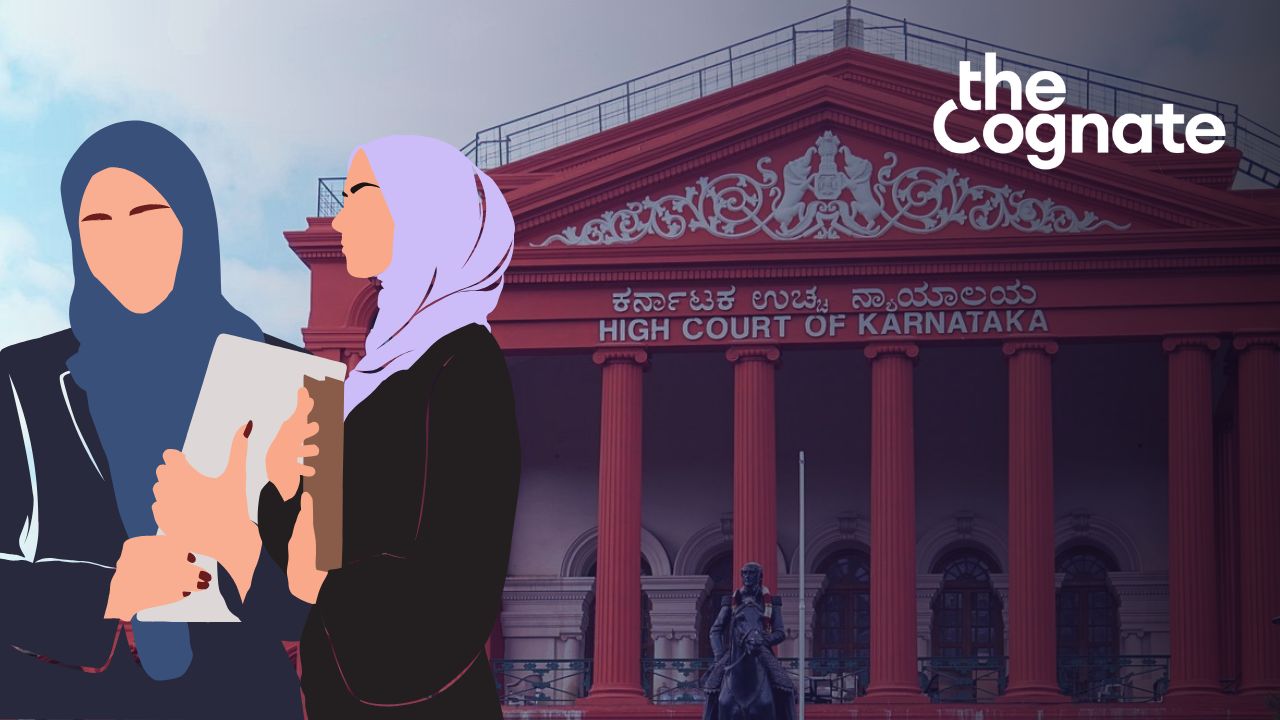PUCL Karnataka has released a report detailing the impact of a de facto ban on the hijab in educational institutions in Karnataka on the rights to education, dignity, and privacy of Muslim women students.
The report, titled, ‘Closing the Gates to Education:Violations of Rights of Muslim Women Students in Karnataka’s Educational Institutions’ includes testimonials from affected students and discusses the failure of the government, college administrators, and police to protect the rights of these students and to implement the order of the Karnataka High Court on the matter.
It also documents the role of vigilante groups in a campaign against hijab-wearing students and the encouragement of these actions by the inaction of the government and police. The report makes a series of recommendations for addressing the issues raised and upholding the rights of Muslim women students.
The report focuses on three major areas:
(1) The impact on Muslim women students after the imposition of the restriction on wearing hijab in their educational institutions,
(2) The failure of different stakeholders in ensuring the safety of Muslim students, and
(3) Various socio-cultural factors, including the biases, prejudices, and stereotypes against the Muslim community, especially women, which have enabled the escalation of a climate of hate.
In addition, the report chronicles all major developments from December, 2021 until the split ruling delivered by the Hon’ble Supreme Court of India. It details how the education departments failed in their duty to protect the rights of the students and to appropriately implement the order of the Hon’ble Karnataka High Court. It also analyses the role played by the police, judiciary and the media as the crisis unfolded.
The Report also makes a detailed series of recommendations to various stakeholders. Some of the recommendations of the report are listed below:
- The State of Karnataka must uphold its constitutional commitment towards principles of non- discrimination, privacy, autonomy, and dignity in relation to the affected Muslim students.
- The State must compensate students for the loss they have suffered due to its unconstitutional and arbitrary action which has deprived Muslim girl students of their constitutional rights to education, expression, dignity, and non-discrimination.
- The Education Department must issue directives clarifying the ambit of the Karnataka High Court order in Resham vs. State of Karnataka.
- The State of Karnataka should immediately withdraw prosecution initiated against Muslim students, teachers or any such individual for carrying out peaceful protests during the period of February – April 2022.
- The media must develop internal guidelines to regulate the reporting relating to vulnerable communities, minors, and on-going court cases to ensure that the coverage does not aggravate alienation and stigma experienced by marginalised communities.
- The police must:
- Extend protection to all the petitioners and their families who were before the High Court and Supreme Court and ensure their physical safety and security.
- Take swift action in registering cases against members of vigilante groups who have been visibly seen in videos and images harassing and stalking Muslim women students.
- Act on the complaints that were filed by Muslim women students in an unbiased manner and file FIRs against college authorities, Hindutva groups or any individual who violated the right to dignity, privacy, and freedom of expression of the students and their families.
- Undertake departmental inquiry and initiate disciplinary action against their personnel in case of inaction and unauthorised action which has resulted in the violation of fundamental rights of the Muslim students.
- Make available to the public all orders imposing Section 144 of the CrPC in all districts of the state between 01.01.2022 and 30.04.2022.
- The Women and Child Department, Karnataka must: Initiate programmes for providing mental health support for students adversely affected by the hijab verdict.
8. The Karnataka State Human Rights Commission (KSHRC), Karnataka State Minorities Commission (KMSC), Karnataka State Commission for Protection of Child Rights (KSCPCR) and Karnataka State Commission for Women (KSCW) must take suo-moto cognisance of the violations of the rights of Muslim students, women and minors, and intervene in cases of harassment, discrimination and hate speech against Muslims students.
Related












































